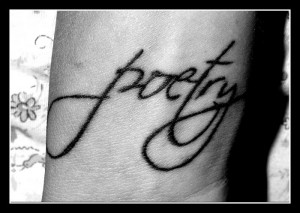 At church, our current series is about discussing how faith grows.
At church, our current series is about discussing how faith grows.
In the process of Sunday sermons and weekly Small Groups, a handful of observations are rising to the surface.
Here is one of them.
TRUST IS HARD.
Whether you learn this doing some silly falling-backwards-into-someone’s-arms exercise or via more intense avenues, I have yet to meet someone who eagerly gives up control. The word “control” is key, for it summarizes the hurdle over which everyone must leap in order to arrive at a position of trust before their Maker.
 We are told that the odds of dying in a car accident are exponentially higher than the odds of dying in a plane crash. Even still, there is an unusual comfort derived from having one’s own hands on the steering wheel. To trust an invisible pilot, whose existence is proven only by an occasional word on the intercom feels far riskier than being at the controls ourselves. But the statistics argue that my own hands are less capable than I might wish to believe.
We are told that the odds of dying in a car accident are exponentially higher than the odds of dying in a plane crash. Even still, there is an unusual comfort derived from having one’s own hands on the steering wheel. To trust an invisible pilot, whose existence is proven only by an occasional word on the intercom feels far riskier than being at the controls ourselves. But the statistics argue that my own hands are less capable than I might wish to believe.
The statistics are not alone in making this declaration.
In his most famous sermon, Jesus urged his listeners to trust God more than they trusted themselves. His rationale? We are not worthy of that level of trust. He stated this with a simple question: “Which of you by being anxious can add a single hour to his span of life or a single cubit to his stature?” (Mt 6:27)
Even in areas of deep convictions, where we possess strong desires, a simple fact remains: We are small. Temporary, finite, limited, fallen – whatever adjective you choose, the same truth emerges. We are insufficient. On an ultimate scale, we cannot be sources or providers of what we need. Said another way, self-trust is not an option.
With that in mind, Jesus provides us an example. Of course, he could have directed our gaze to himself and his before-eternity bond to the Father. Certainly his entire existence was built upon reality-altering faith. But that might have overwhelmed us. So he chose an example from the crowds, a people-of-dust model, so mundane as to be easy to miss.
LITTLE ONES
“Let the little children come to me and do not hinder them, for to such belongs the kingdom of heaven.” (Mt 19:14)
 In the “real world”, children represent all that is insignificant. Of course, we notice their innocence, envy their purity, and squish their chubby cheeks. But those things are quaint, holding no weight in the adult world. Or so we think.
In the “real world”, children represent all that is insignificant. Of course, we notice their innocence, envy their purity, and squish their chubby cheeks. But those things are quaint, holding no weight in the adult world. Or so we think.
Yet addressing the adult world, the Anointed One declares, “You want to know how to trust? Look down. Consider the small ones who neither conceived nor birthed themselves. They are fed and cleaned and carried by another. They survive and thrive under the watch of eyes and provision of hands not their own. And they are fine with this. They live out this position with confident acceptance, both appropriate and beautiful.”
And you?
- Are you at peace with your puniness?
- Are you content to be carried?
- Are you satisfied with being satisfied by Another?
Those are little, large questions. And they reveal whether the spirit within us is capable of grasping the kingdom which God offers. It is not that He withdraws from those who aren’t childlike in faith; rather, it is those clinging to competence or confidence or control who will subconsciously withdraw from the kingdom He offers.
Simply put, one cannot take hold of a wondrous gift if his hands are occupied with gripping the controls.
YOUR TURN: What about you? How has God challenged your desires for control and independence? How has your trust in God blossomed as you’ve granted Him access to your life?




